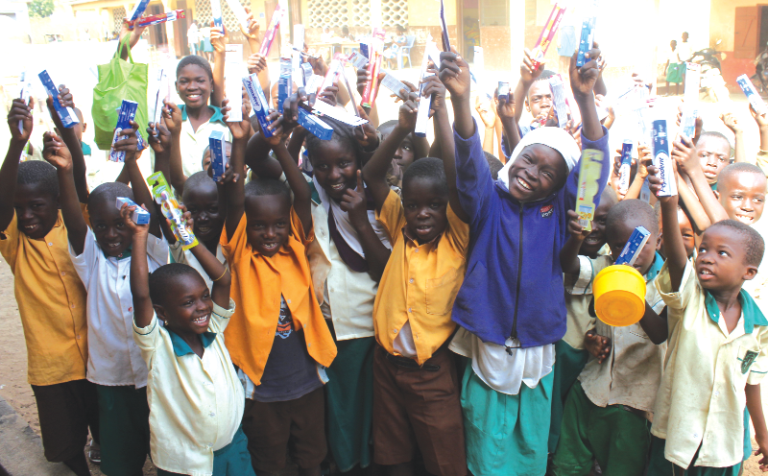
Oral health project for children underway in Bolga
SOS Children’s Villages, Ghana, a non-governmental organisation, has embarked on a two-month Oral Health Project in Bolgatanga in the Upper East Region.
Advertisement
The project, which forms part of the NGO’s commitment to Goal 3 of the Sustainable Development Goals (SDGs) that seeks to promote good health, targets children, with the aim of sensitising local communities and their environs to the need to adhere to proper personal hygiene practices with specific emphasis on children’s oral health.
As part of the project, the NGO also presented the children with recommended toothbrushes and pastes for all ages, while providing schools in the communities with varied forms of oral health educational materials including posters and booklets.
In addition, children with severe oral health cases were referred to dental clinics to seek professional care.
Survey
According to the National Director of the NGO, Mr Alexander Mar Kekula, the project became necessary after a survey by the oral health team of the organisation revealed that a majority of children within the town suffered from tooth decay (cavities), with a few at its chronic stages.
He said when left untreated, this often caused severe pains and progressed to infectious stages, leading to bleeding gums, tooth discolouration, bad breath, sores in the mouth, plaque buildup, among others diseases.
Mr Kekula said decaying tooth had led to children shying away from their peers and school.
“Such children are teased and this affects their self-esteem and active participation in school activities, hence the need for the Oral Health Campaign to reach out to all the 10 regions of Ghana,” he said.
The survey by the team also showed that the percentage of children aged between four and 12 in low income families with symptoms of tooth decay were twice as high as compared to those from high income families.
It also showed that the three major reasons contributing to the spate of bad dental practices in most communities visited were sheer parental negligence, ignorance and inabitity to afford treatment for dental by the larger portion of society.
According to the Project Coordinator of the Oral Health Project, Ms Naa Bruce-Konuah, the ongoing project had reached out to about 67 public basic schools in 10 circuits within the municipality.
This was in collaboration with District Offices of the Ghana Education Service (GES), the municipal assembly, community leaders and basic school teachers.
Ignorance
Most of the children did not own toothbrushes and preferred the use of chewing sticks made from Nim trees or the stem of plantain, while a few admitted they had never used toothbrushes or toothpaste.
The residues from the chewing sticks are dipped in ashes from charcoal, sand, salt, lime and other unidentified substances in cleaning their teeth.
Some teachers attributed the above practices to ignorance on the part of parents of the importance of using recommended toothpastes for children, native beliefs, generational inherited practices and inability of parents to secure toothbrushes and pastes due to poverty.
The Circuit Supervisor of the South East Circuit in Bolgatanga, Mrs Theresah Benedicta Alegimah, partly blamed the bad dental condition to untreated and limited sources of water in most communities and their surrounding areas.
“Most schools don’t have pipe-borne water and this is a major challenge being faced at most schools. Water from unrecognisable sources are often contaminated and are detrimental to their teeth,” she said.



